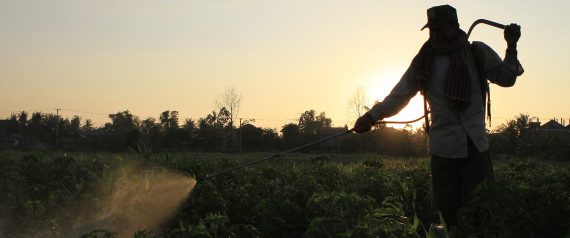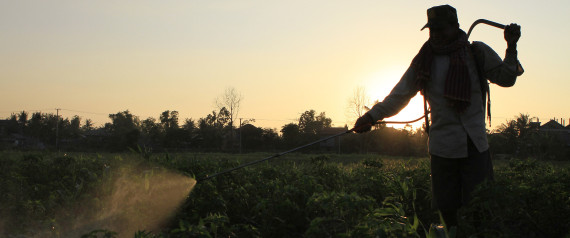“A single corn kernel coated with a neonicotinoid can kill a song bird.” As a long time environmental lawyer and campaigner, I should not have been stunned by that fact but I was. Shaking my head in dismay, I read on, “Even a tiny grain of wheat or canola treated with the …neonicotinoid… can fatally poison a bird.”
The report is from the American Bird Conservancy and the neonicotinoids referred to are a relatively new class of insecticides that have become the most commonly used in the world, with several hundred products approved for use in the U.S. These “neonics” are neurotoxins that paralyze and eventually kill their victim. My organization, Center for Food Safety, has been working hard to halt the use of these neonics through litigation, legislation, and legal petitions to the Environmental Protection Agency. We are suing to address the well-publicized threat that neonics present to the survival of honey bees and wild bees. At the time we launched our legal actions, I did not even know about the song birds.
The anger-stirring realization that a song bird could be felled by a single seed and the prospect of bees being silenced forever brought me back to the words of Rachel Carson, written more than half a century ago in Silent Spring. “These… non selective chemicals have the power to kill every insect, the ‘good' and the ‘bad,' to still the songs of the birds and the leaping fish… they should not be called insecticides but biocides.” Through Carson's crusade, biocides like DDT were eventually banned but new chemicals like neonicotinoids and other similar “systemic” insecticides/biocides have taken their place causing similar ecological havoc. Sadly, our regulatory agencies under the sway of the agrochemical industry have enabled this tragic and continuing environmental destruction.
I think it is long past due that we who work in the food and environmental movement adopt Carson's nomenclature. Let's not refer to pesticides, whether they are insecticides, herbicides or fungicides, by anything but their real name: biocides. Words do matter.
The “cide” ending in all these terms comes from the Latin caedare meaning “to kill.” Given that these chemicals are designed to kill that root word is accurate. But using the word pest-icide gives the impression that all these chemicals do is kill “pests,” whether insects, plant, or fungi pests. The neonicotinoids killing bees and song birds puts that delusion to rest. The bee is an insect but not a pest and the song bird is neither an insect nor a pest.
But Carson only referred to insecticides as biocides. Is it fair to put all pesticides, including herbicides and fungicides, in the same pejorative etymological category? Well, let's look at Monsanto's Roundup. It is the most widely used herbicide in the world because of the adoption of genetically engineered (GE) crops designed to tolerate the chemical. Is Roundup just a pesticide, a careful killer of just those “bad” plants called weeds that farmers wish to remove? Of course not. Roundup does so much more than kill plant pests. It wipes out beneficial plants of all sorts: food crops, fruits in the orchard, flowers in the garden, in fact anything that is green. Most of these are not pests or weeds. Among the beneficial plants it destroys is milkweed, on which monarch butterflies depend. The massive use of Roundup in the U.S. has destroyed so much milkweed that monarch butterflies are now at risk of extinction. Monarch butterflies are not pests or weeds.
Source: They Are Biocides, Not Pesticides — And They Are Creating an Ecocide | Andrew Kimbrell


